North Carolina is one of my favorite places. From the mountains, to Raleigh, and the beaches. Actually, I have never been to one of the beaches, but they look beautiful on google and I do love a good beach. That aside, I would move there in a heartbeat if my husband – he loves where we live – and kids would come. I can’t say there is one particular reason I would move there – I just would.
Every state has its own nickname and NC is no exception. It is called the “Tar Heel State.” Kind of a funny name for such a beautiful state. Why is this the nickname? I will tell you. Pine trees, it all started with Pine Trees. Back in colonial times, specifically around the Civil War, tar and turpentine were made from pine tree needles. I think we all know tar is a very sticky substance and it would wind up on the bottom of the workers shoes. This story can go on for a while, but my editor said to try to cut down on my word count.

So, long story short. Jefferson Davis was president of the confederate army at the time and threatened to put tar on the bottom of the soldier’s feet. But why? The tar would stick to their feet making the soldiers stay in their places on the battle field. I can’t help but visualize solders sticking to the fields like pawns on a chess board. I would imagine the end result would be very bloody and even more horrible. Thank goodness it was only a threat. So there you have it.
WTFCF revisited this beautiful state August 11 – 12. This was a very different type of trip. It dealt with farms and organizations that give back to the community. We have seen this before with Feeding America and Society of St. Andrew, but this has a different twist. Let’s meet these wonderful folks and find out what they do.
Our First Stop – Hickory Meadows Organics
As the name implies, this is an organic farm. I have never seen an organic farm before and it was quite different. Of course it had our token gnats to swat away and many roots and vines for me to trip over. Ugh!
This farm did not have the beautiful rows of plants I have gotten use to seeing. The plants appeared to be a little faded and weeds were more abundant. This did not make sense.
My question became, “what exactly is organic farming?” We all know it means manufactured fertilizers are not used, but maybe there is a bit more to it. Here is my simple answer. Organic farming uses fertilizers from an organic (living matter) source. Some examples are manure, green manure or a cover crop. Once again, green manure was a new term. Turns out, green manure are plants or debris whose sole function is to maintain how productive a field is. Applied in the fall, these crops are already withered and are turned over back into the soil. No wonder the fields look like they have more weeds. It is really green manure.
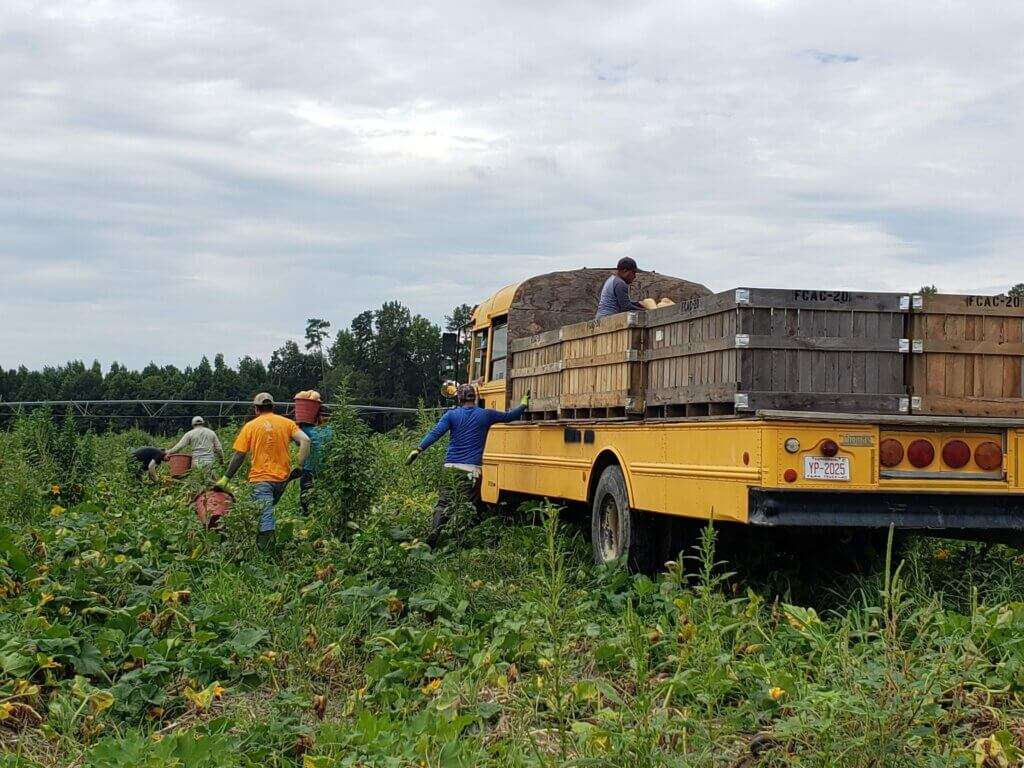
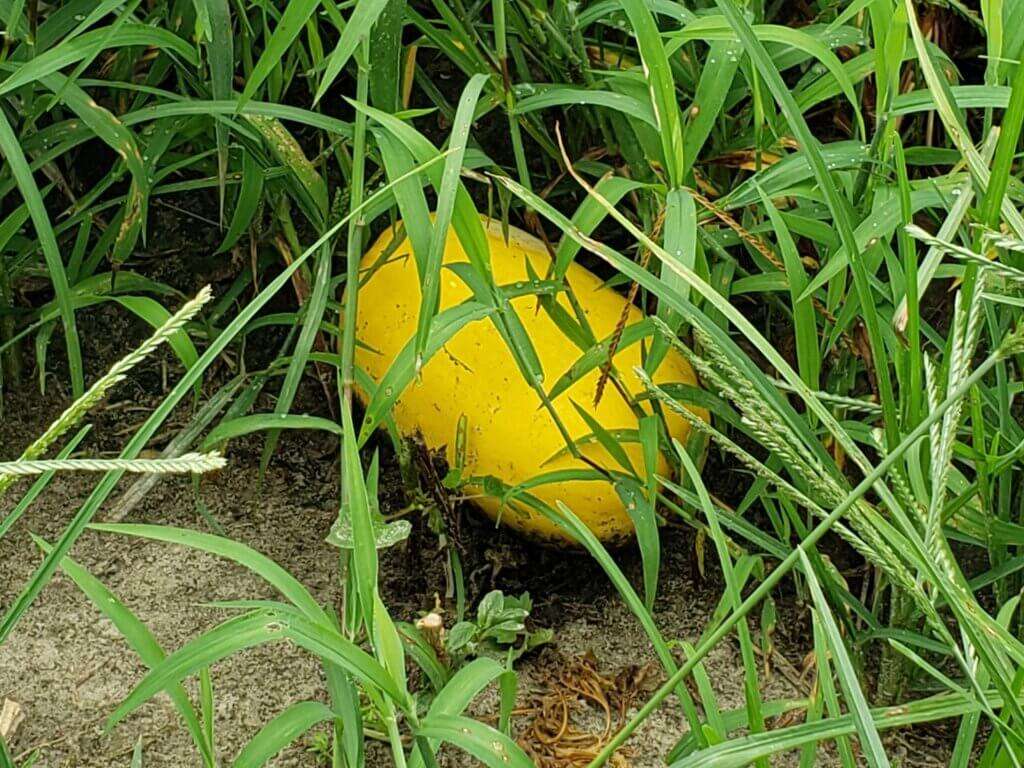
Other techniques involve crop rotation (growing different crops throughout the season reducing one nutrient becoming deficient) and companion planting (planting different crops in one area). There are multiple reasons companion planting is done. Some examples include: pest control, pollination, and giving the good insects – I did not know there was such a thing – a place to live.
What I later found out, the fields at Hickory Meadows Organics had already been harvested and minimal produce remained. That explained a lot. I guess there was no reason for my above explanation. But since I did the basic research I had to leave it in, just out of principal.
Please note, the remaining produce looked wonderful. I have seen pictures of organic farms and they are beautiful. I would love to revisit this field when it is in all its glory. And since we are in NC so much I really don’t think this will be a problem.
In the fields our first interview was with Billy and Peyton McDaniel, partners Hickory Meadows Organics. They spoke about their parents and what it is like growing organics. You can hear it in the interview.
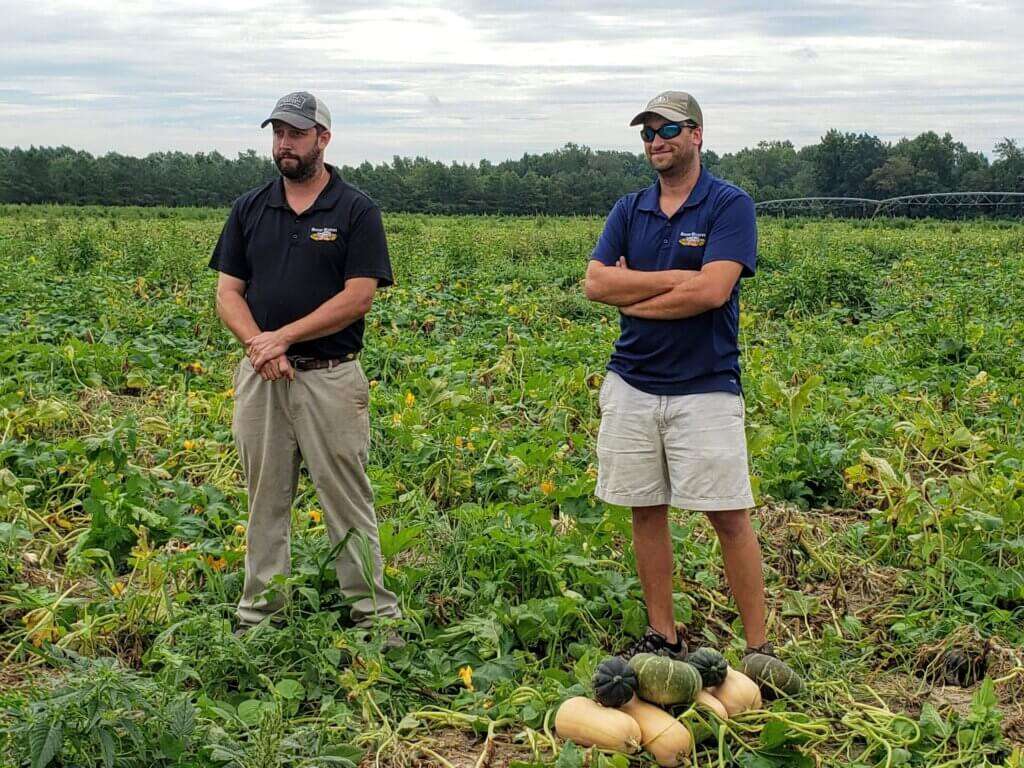
Our keynote interview took place with Founder & CEO Ripe Revival Will Kornegay. Will spoke about the start of this organization and why it was created, more about that later, and naturally you can see it in the episode.
Will is no stranger to concepts of reducing food waste. As a matter of fact, Will started a company called Glean with his sister Laura Kornegay. These wonderful products were created with simple ingredients. Glean dealt with sweetpotato superfoods, flours/powders and pet treats. A really good concept if you think about it. It helps those who have problems with food allergies – like yours truly. They have since sold Glean, but the concept of getting wholesome and nutritious food to those who need it continues. Hello Ripe Revival.
Will and Chip discussed how Ripe Revival started. I cannot even begin to summarize it; you will get the full rundown in the episode.
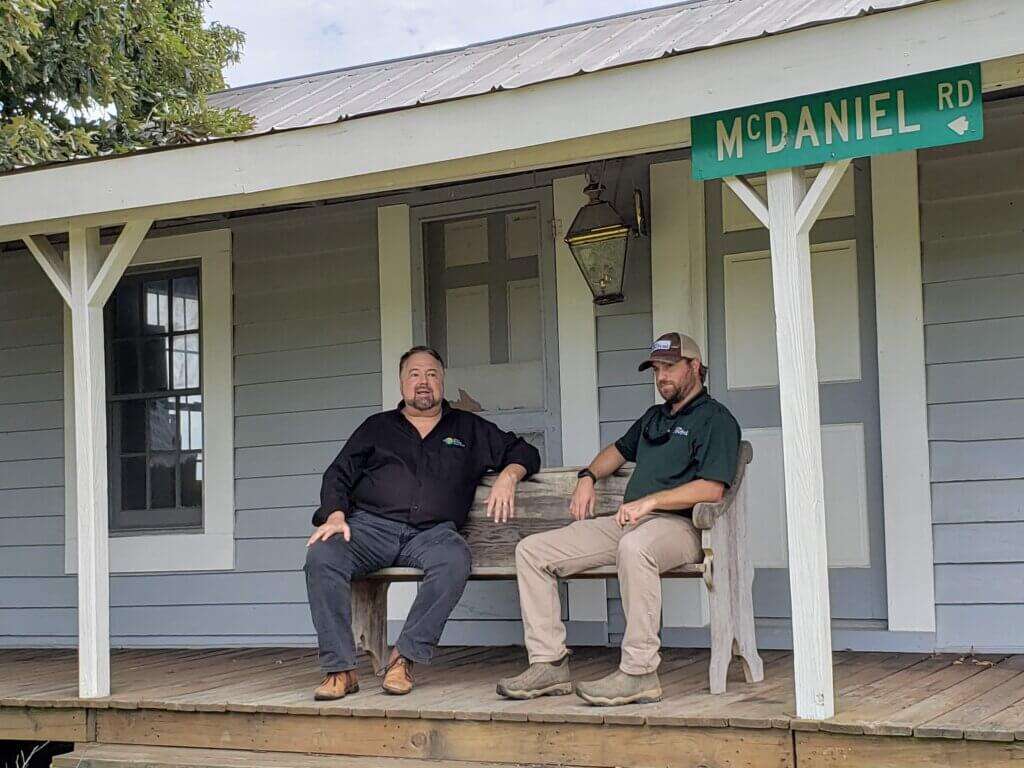
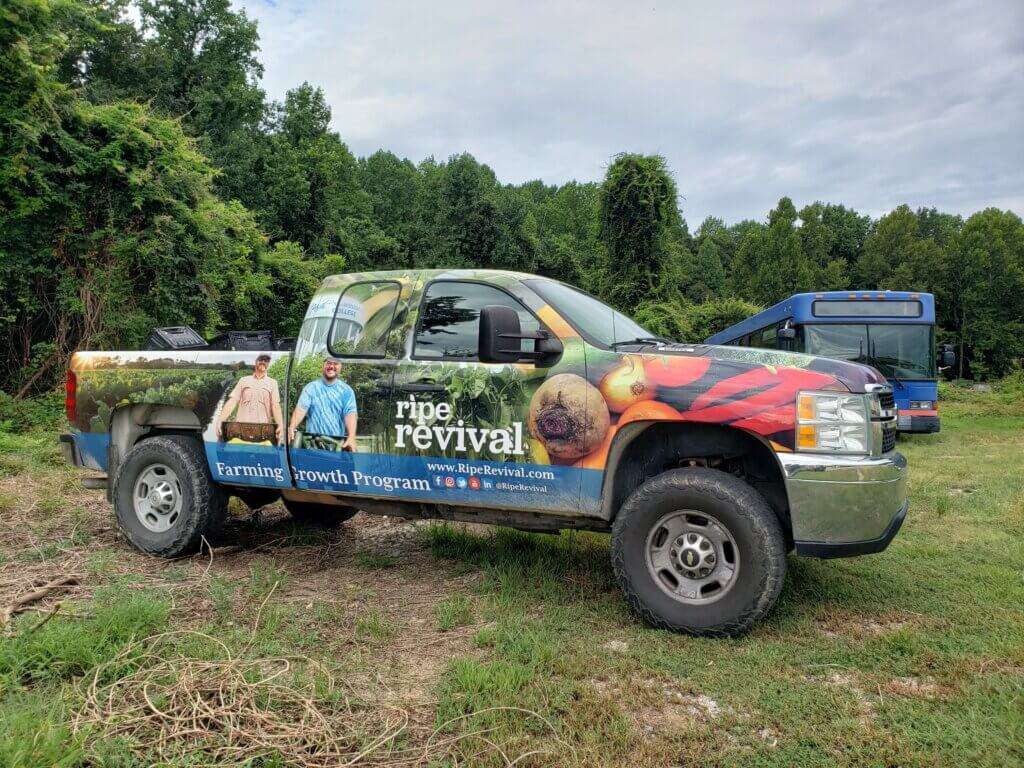
Okay, back to the shoot. On the front porch of a little house the crew was setting up for the shoot between Chip and Will. Jordan, the camera man, told me to sit in Chip’s place. By the way this is needed to get the camera angles right. Chip must have been off talking to someone else, no surprise there, but the crew would have preferred Chip stay in the car so he would literally stop melting. While we were waiting for Chip, Will told me a story about how he became one of the owners of Hickory Meadows Organics. It goes something like this.
When he was younger, he liked hanging out with Billy and Peyton McDaniel at the little house. One night he was driving his jeep down McDaniel road with the lights out and ran into the cow fence. Since it was late he spent the night. When he woke up the cows were all over the place. Somehow it was this incident that made him want to go into farming. Okay, so the below picture is not of the jeep. I just really like the pickup trucks.
Our time at Hickory Meadows Organics was over. Our next stop Vick Family Farms.
Olaud Vick, Jerome Vick’s father, started the 25-acre sweetpotato farm and in 1975 Jerome took it over. But it did not stop there. Jerome expanded the farm to over 7,000 acres. Now that’s impressive. Vick Family Farms is a third generation farm. I love it when farms are kept in the family and not sold to large housing developers.
With his daughter and co-partner Charlotte Vick at his side they discussed Jerome’s background. But the primary focus was on breast cancer and how Vick Family Farms contributes to this important health issue.
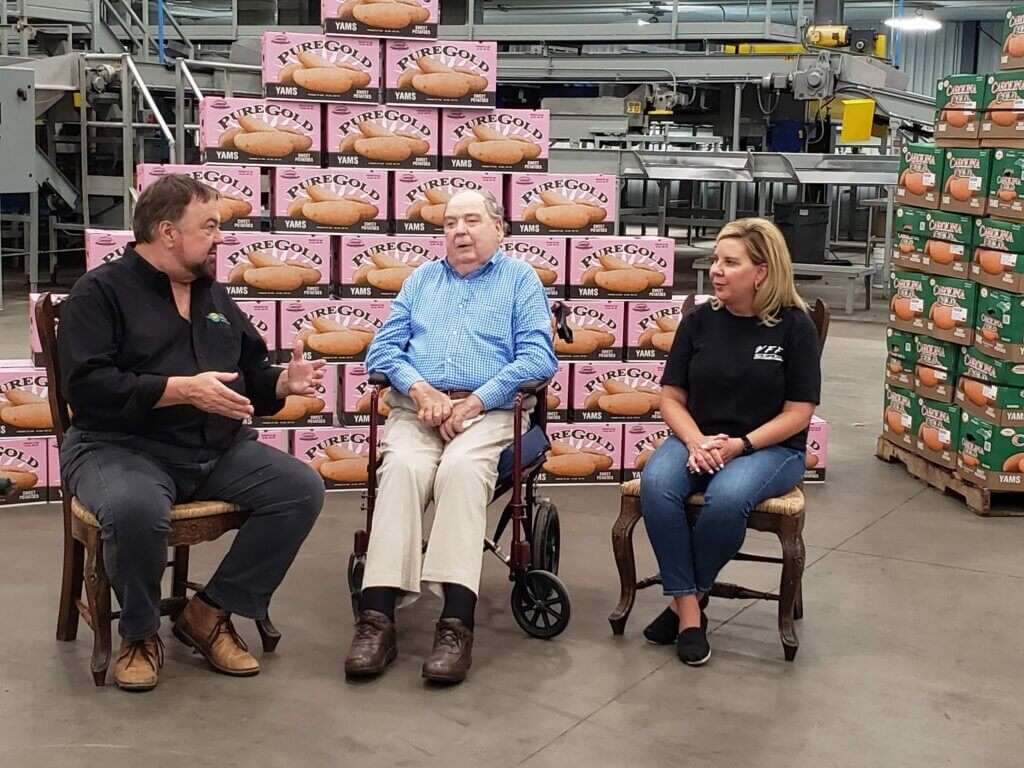
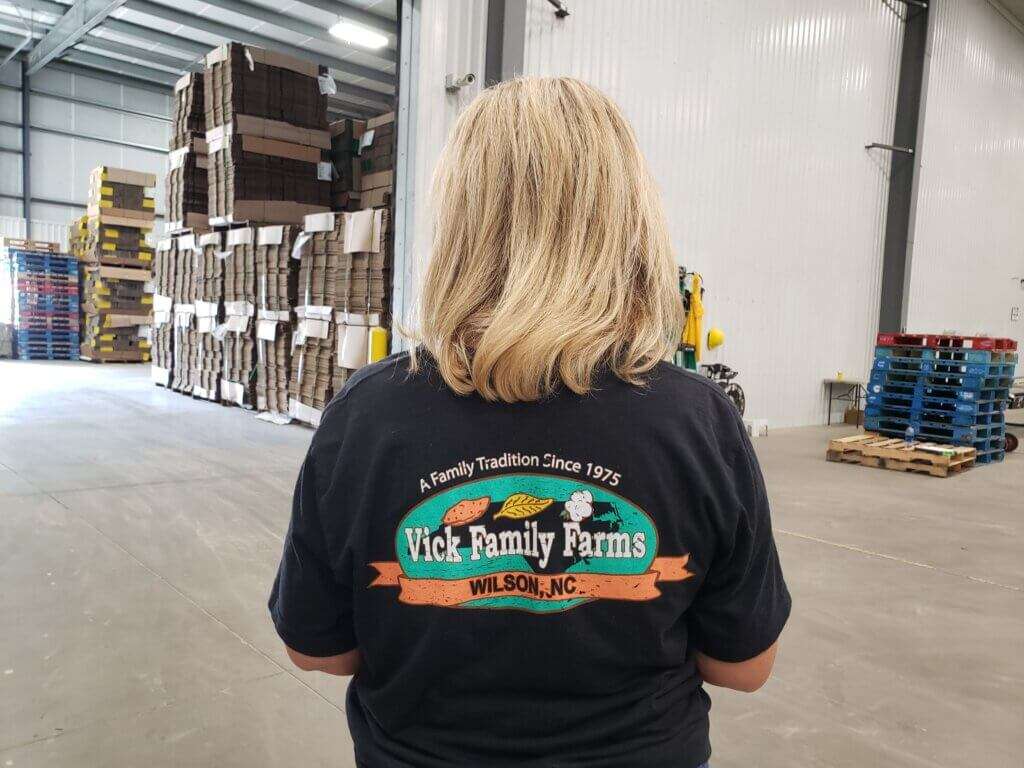
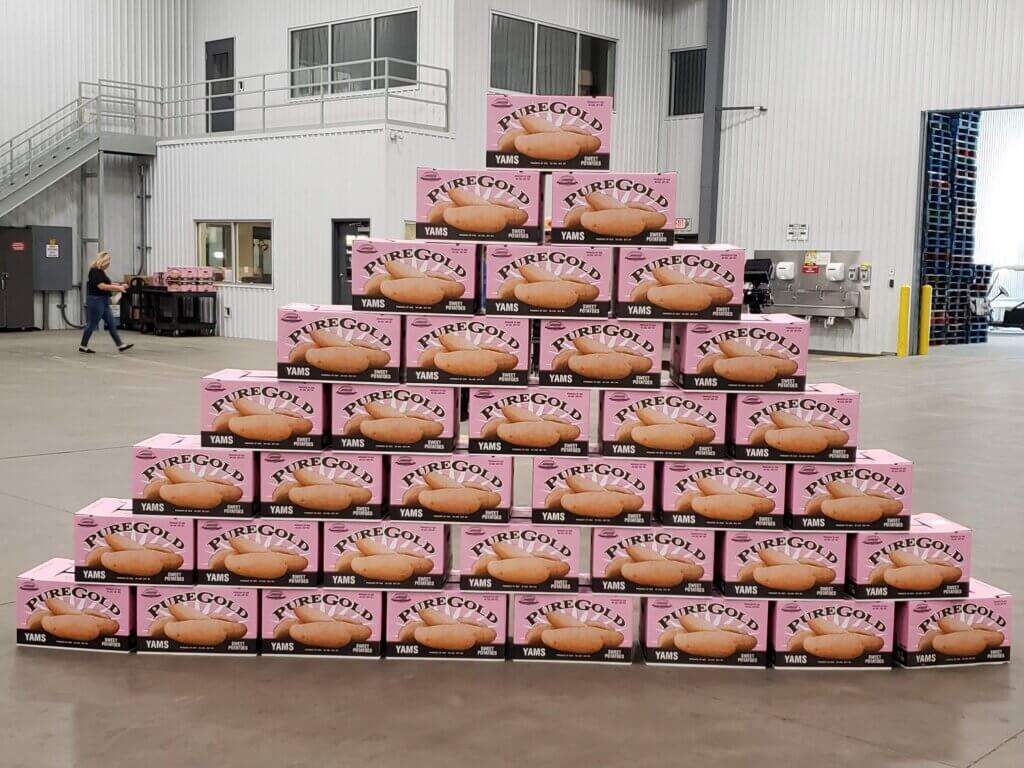
Vick Family Farms has created pink boxes for packing their Pure Gold sweetpotatoes for breast cancer awareness month (October 1 – 31) and a portion of sales goes to the Mother’s Day Mammogram contributor program through the Wilmed Healthcare Foundation.
This foundation provides free mammogram screenings to those women who can’t afford them. Pretty impressive and very important because mammograms are the first line of defense for diagnosing breast cancer. The number of diagnosis per year is staggering, about 287,850 and the number of deaths per year is approximately 43,250. Imagine how many lives can be saved by contributing to the Mother’s Day Mammogram contributor program. Isn’t this a great way to give back to the community?
Our next stop – Kornegay Family Farms & Produce.
Our interview took place in the pool house of the Kornegay’s family home. I really wanted to take more pictures, but I did not want to intrude on the family’s privacy.
This interview took a very serious and emotional turn. You see, Kim Kornegay LeQuire is a breast cancer survivor. She was very frank in discussing her experience, support systems and the faith she had to get through this ordeal. Like I said this was an emotional interview, but some of what she shared came as no surprise to me. I will explain why at the end of the interview.
Kim was joined by her friend Caroline Hines Barefoot. Caroline is the owner of Hines Family Farms Inc. They spoke intensely about their relationship and how Caroline was a major support system during Kim’s process. I am not really sure, but I got the feeling their friendship was solidified during Kim’s battle with breast cancer.
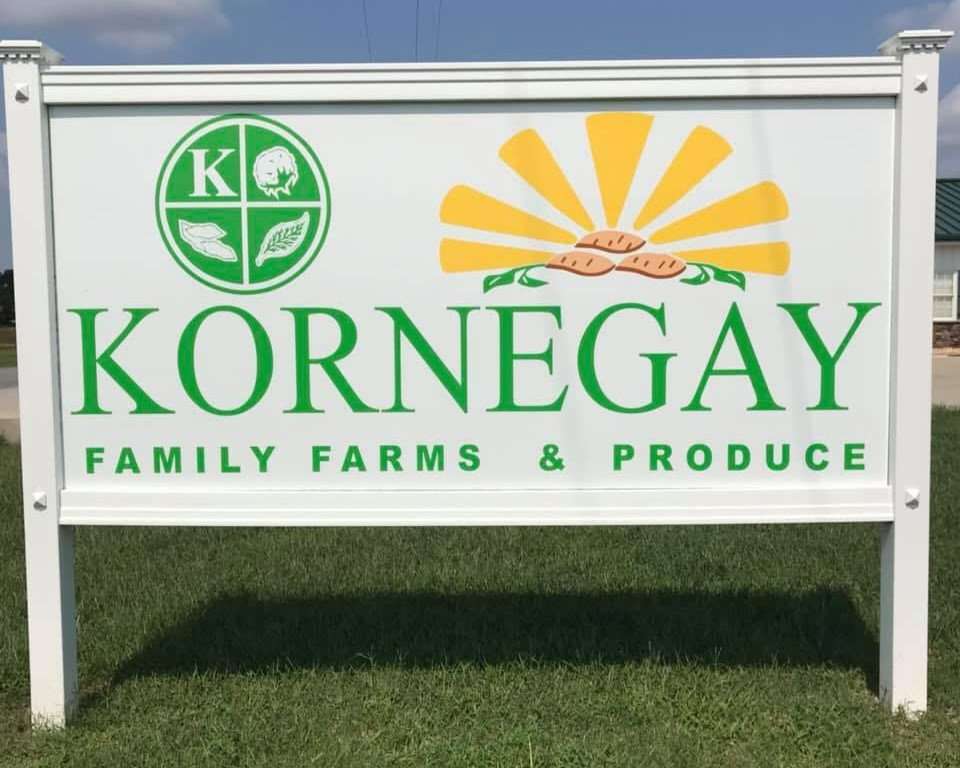
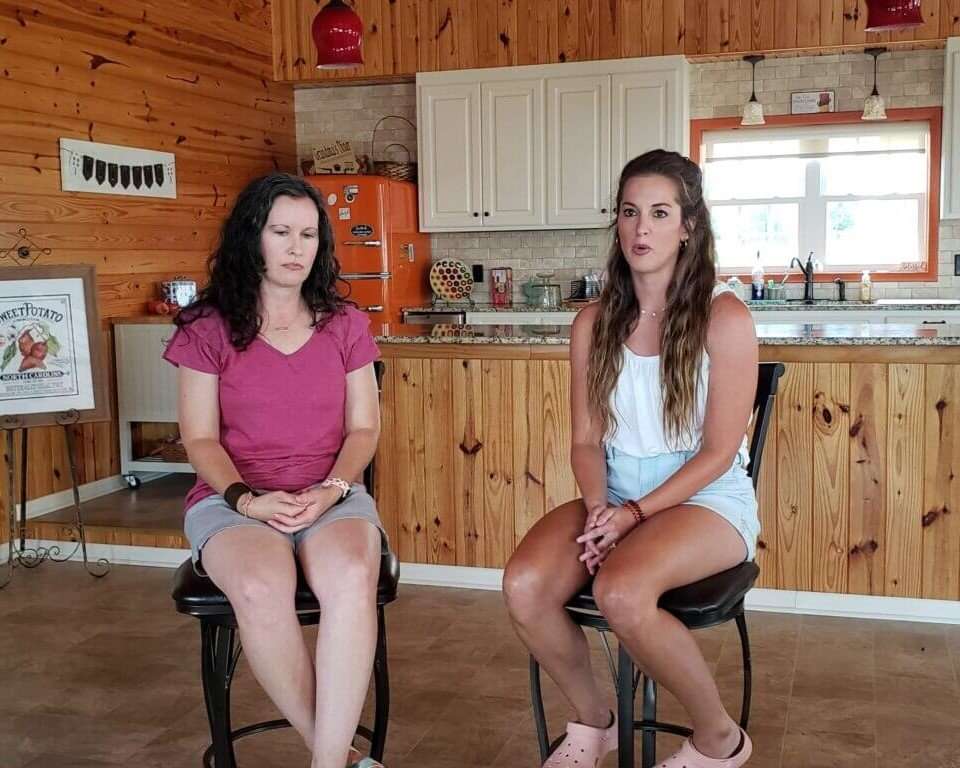
Kim (L) and Caroline
The Kornegay’s and Hines’s are very involved with creating local support groups for those suffering from breast cancer. They are also heavily involved with the Pretty in Pink Foundation. Pretty in Pink Foundation’s mission is to provide medical care to those women with breast cancer who are unable to afford it.
So you have the Vick’s contribution to Wilmed Healthcare Foundation which provides free mammogram screenings to those who can’t afford it. To the Kornegay’s and Hine’s contributions to the Pretty in Pink Foundation to help with financial assistance during treatment. Talk about a full circle.
So what’s my story? Some of you probably know I am a nurse. While working in the hospital my specialty was women’s health (I left this position to become a nursing instructor at a private nursing college).
In this capacity I had the opportunity to take care of many post-surgical breast cancer patients. Let me tell you, they are some of the bravest women I know. It was surprising to find out how many elected to have the other breast removed even though it did not have a cancer cell in it. I rarely got the impression they fell into the “why me” mentality. Actually, some of the women accepted this better than their families. I always considered it a privilege and an honor to take care of this brave women.
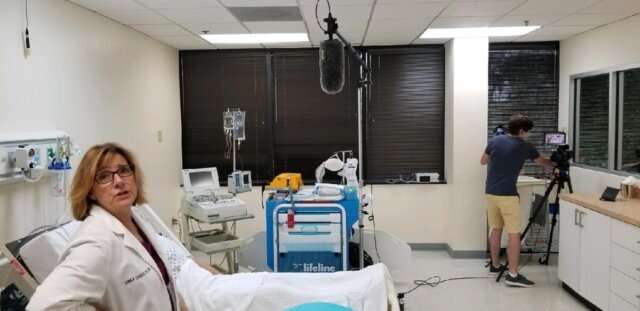
Donna, a former nursing clinical instructor, pictured in the college's simulation lab.
Our final interview of the day took place with sweetpotato farmer Mike Wood. Mike is a 10-year Assistant Fire Chief for the Meadow Fire Department in Benson, NC. Please keep in mind Benson is a small town of approximately 4,000 people.
So what did Mike talk about? Mike explained how today’s farmers are busier than ever and multitasking becomes essential especially in a small town. So how has this call been answered?
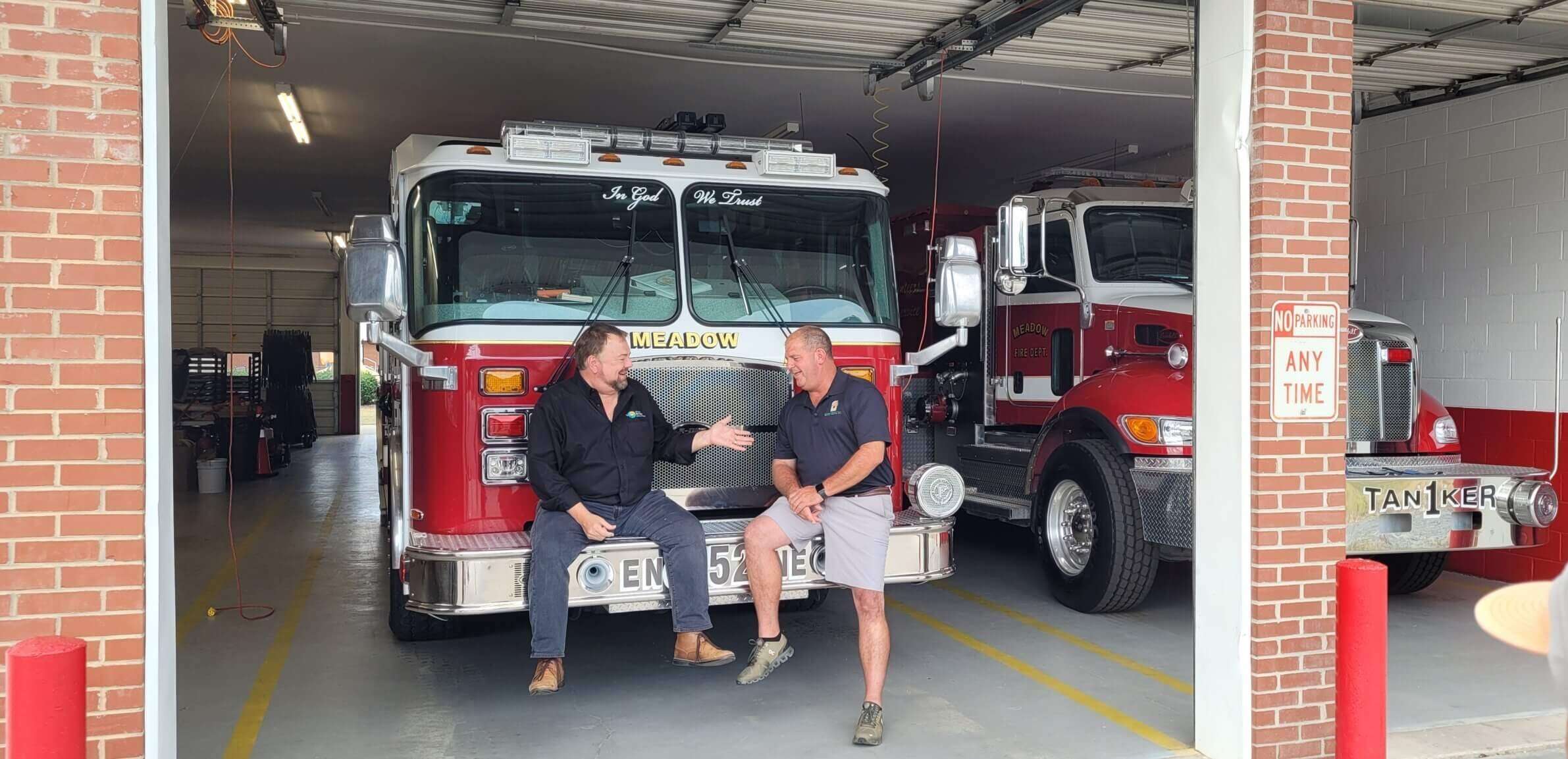
Many farmers have joined the volunteer fire department. But this is what I found interesting, the volunteer fire department primarily serves as an emergency medical service (EMS) and are first responders for the area. Fighting fires and acting as an EMS these men/women are definitely giving back to their community. Somehow I don’t really find that surprising for a small town. Small towns give me the sense of security and camaraderie.
There was one thing I found to be very different and impressive – a box. Yes, a simple box. This box contained dry goods people drop off and those who need it can just take from it. Amazing, every town should have one.
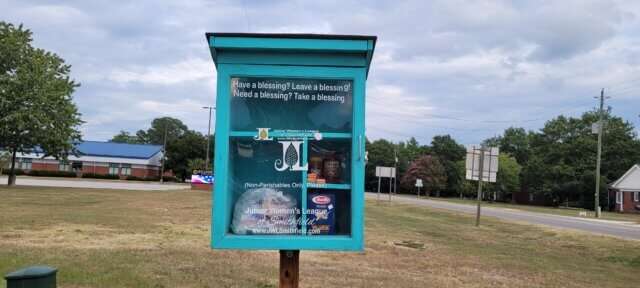
Day 2
Our second day took us to St. Mark AME Church and this is where we saw Ripe Revival in action. Let’s back up.
The day started out at the packing house for Ripe Revival. There we saw a huge bus. What exactly is this huge bus? It’s a mobile food store or as they call it a mobile market, more specific Ripe Revival Market.
There was an interview between Will Kornegay and Pastor Robert J. Yarbrough of St. Mark AMA church. I totally missed it. Not one picture or one note, but I am so happy you can see it during the episode.
What I was doing was dodging raindrops and talking to the people from this wonderful community. They were so gracious and welcoming. They made you feel like you were part of them. That’s not a feeling you always get.
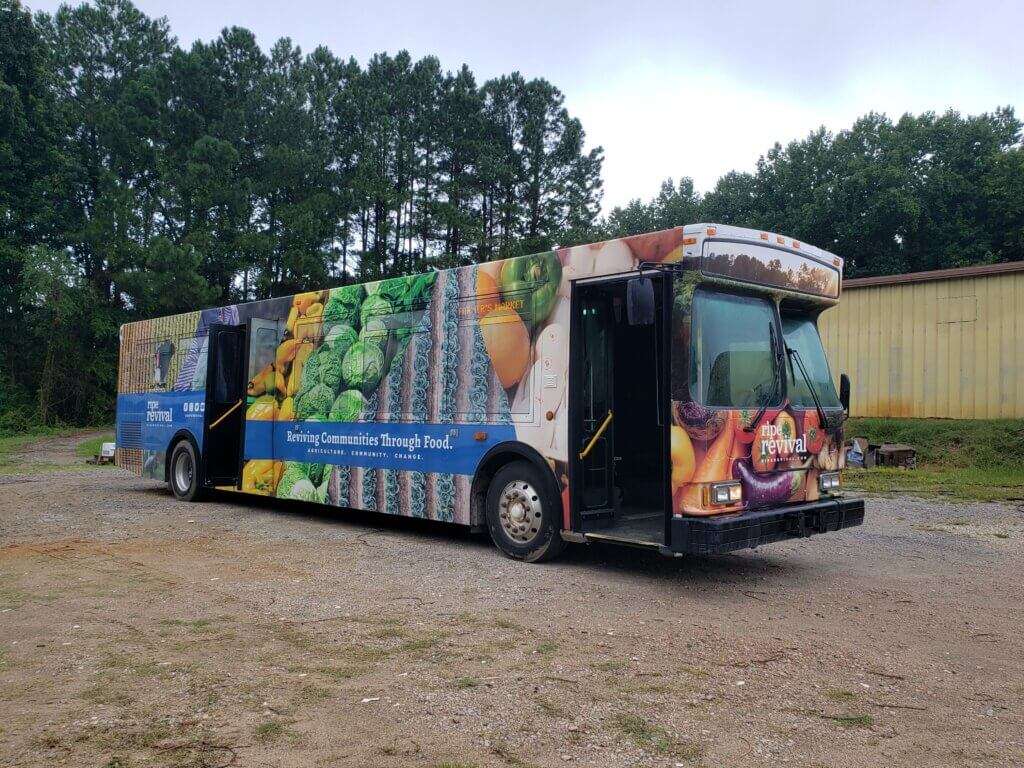
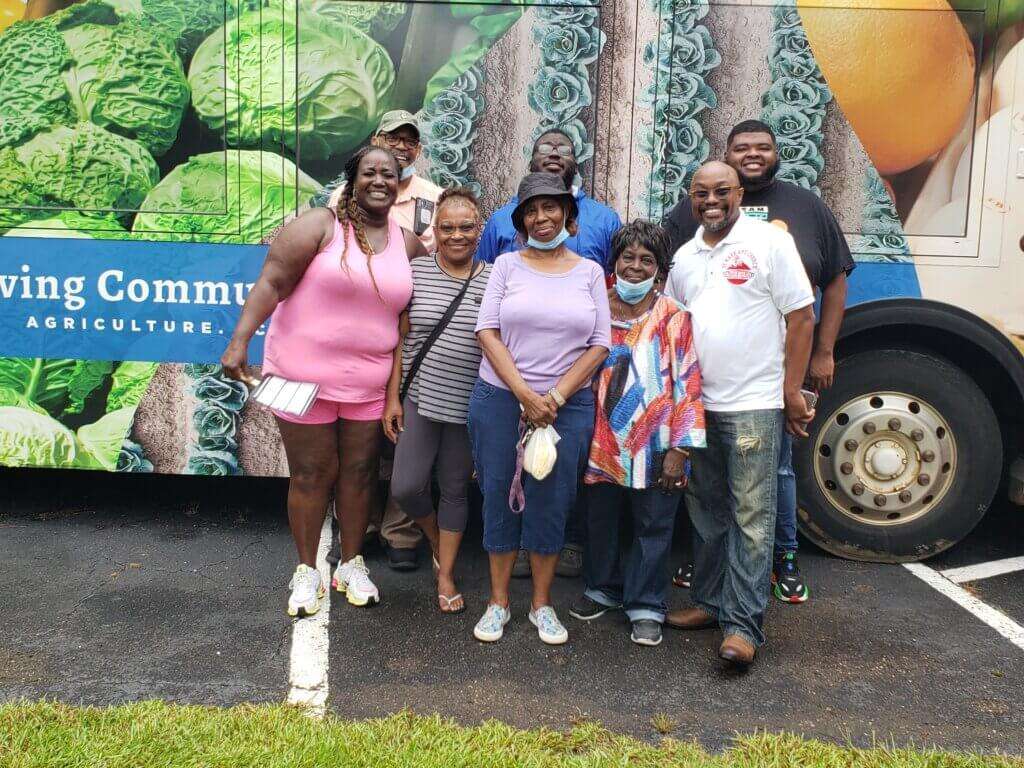
Ripe Revival’s purpose is to help revive communities through food by taking “farm excess” and turning it into “food access.” Ripe Revival works with local and regional farmers and businesses to ensure availability of a wide variety of fresh produce to those who need it. Wow, not only do they give it away, but they go to the farms to pick the produce up.
Ripe Revival’s concept is to pay what you can and if you can’t you can’t. No judgment there.
One really great thing is there are chefs aboard the bus. They provide cooking lessons to those who may not know how to prepare the fresh produce. I wish I could have seen that in action, but it was a rainy day and not suitable for outdoor cooking demonstrations.
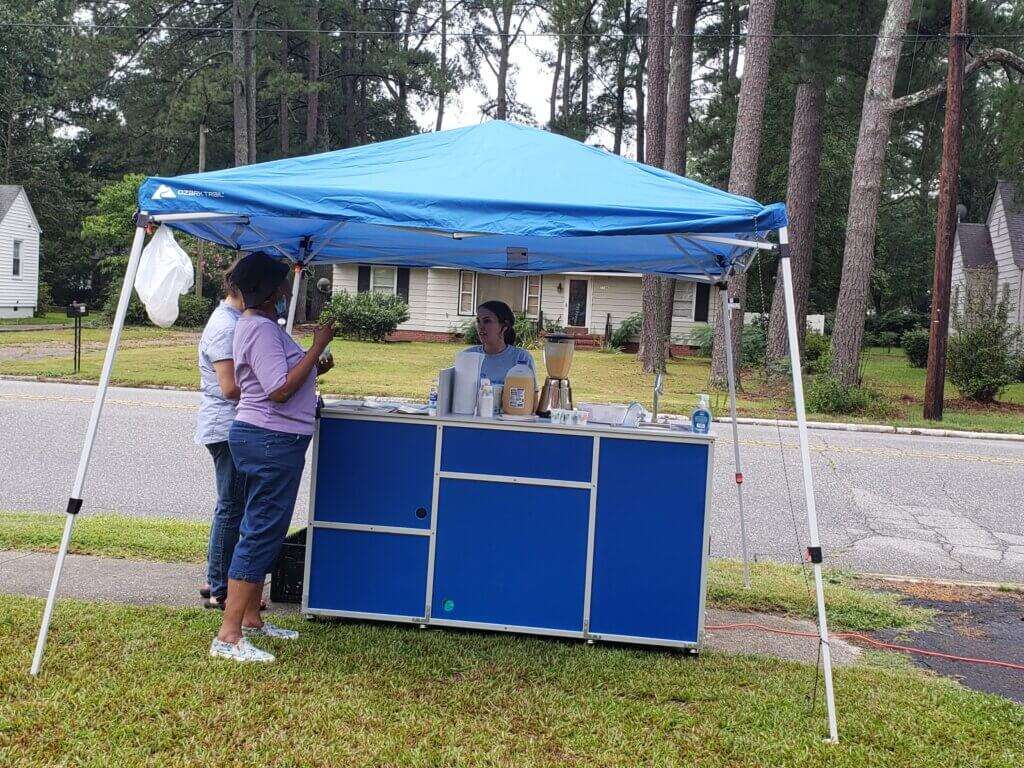
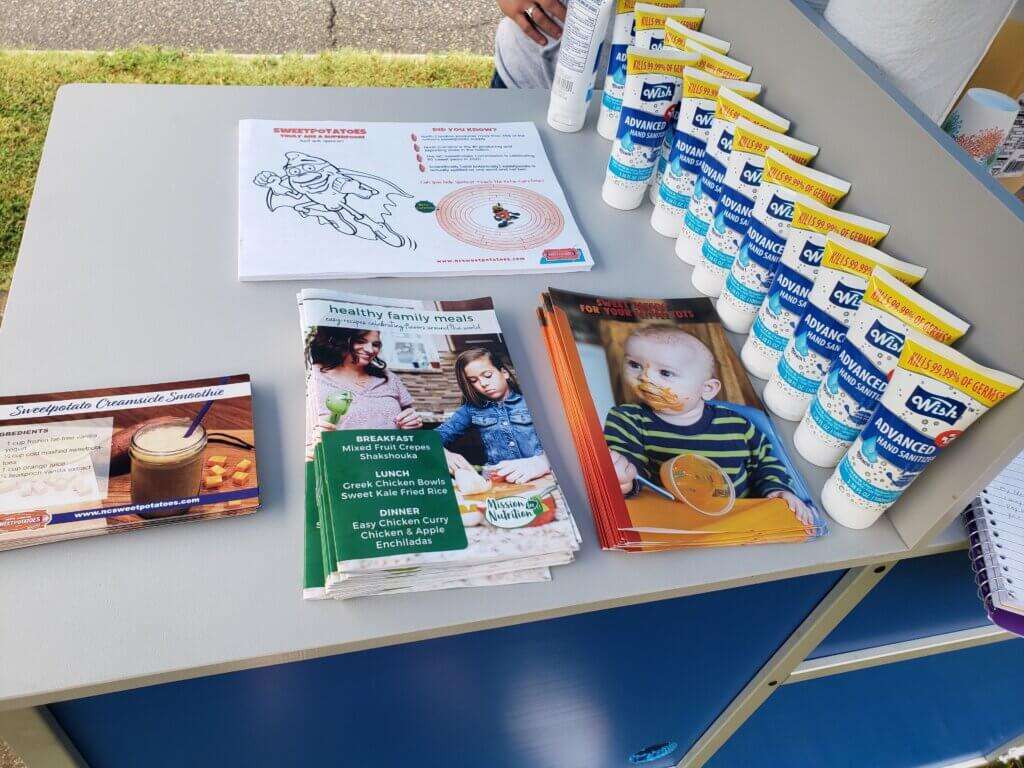
All was not lost. There was a tent set up where Community Health Development Director Sarah Hester was providing samples of Sweetpotato Creamsicle Smoothies. Which I might add is really delicious. But, it did not stop there. Sarah was giving out literature about healthy meal planning for families and some bonus stuff. Pretty cool. Again, a full circle. People have the ability to purchase food, learn how to cook it, and are educated on healthy meal planning.
Time to go shopping! Director, Health & Wellness Ministry Christy Stith-Banks became our secret shopper. As one would expect Chip & Christy spent a lot of time on the bus discussing the produce and all the other wonderful products which are available. Between the shelves and refrigerators the bus was a bit cramped so I could not hang out too long. You will see the shopping excursion during the episode.
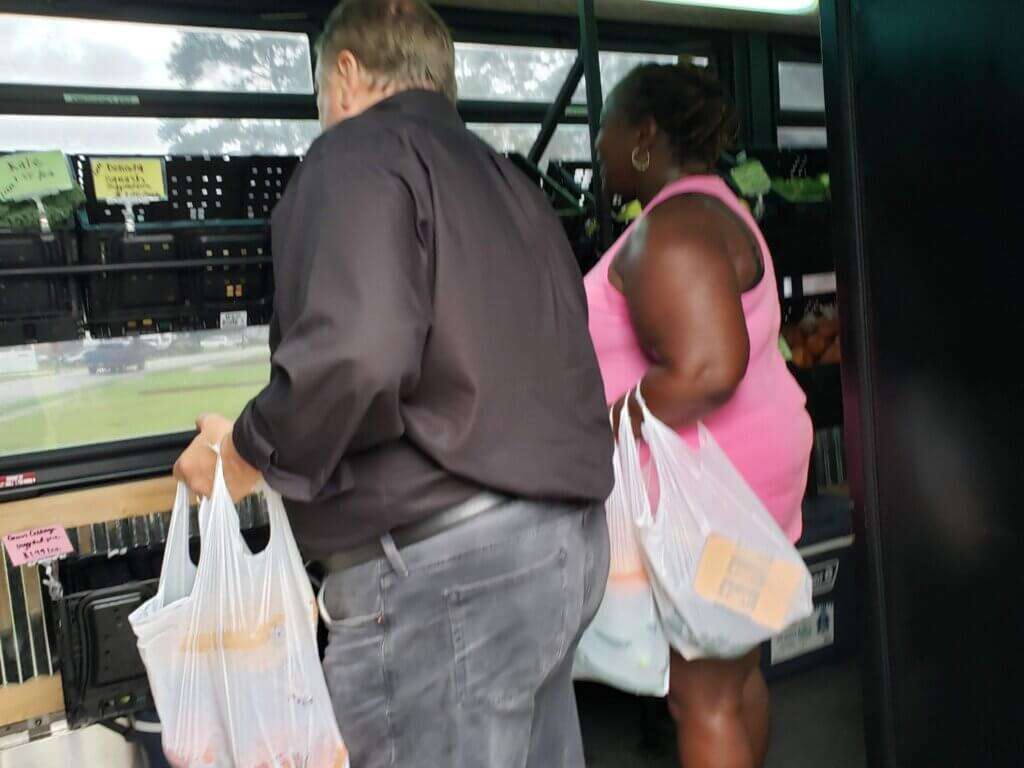
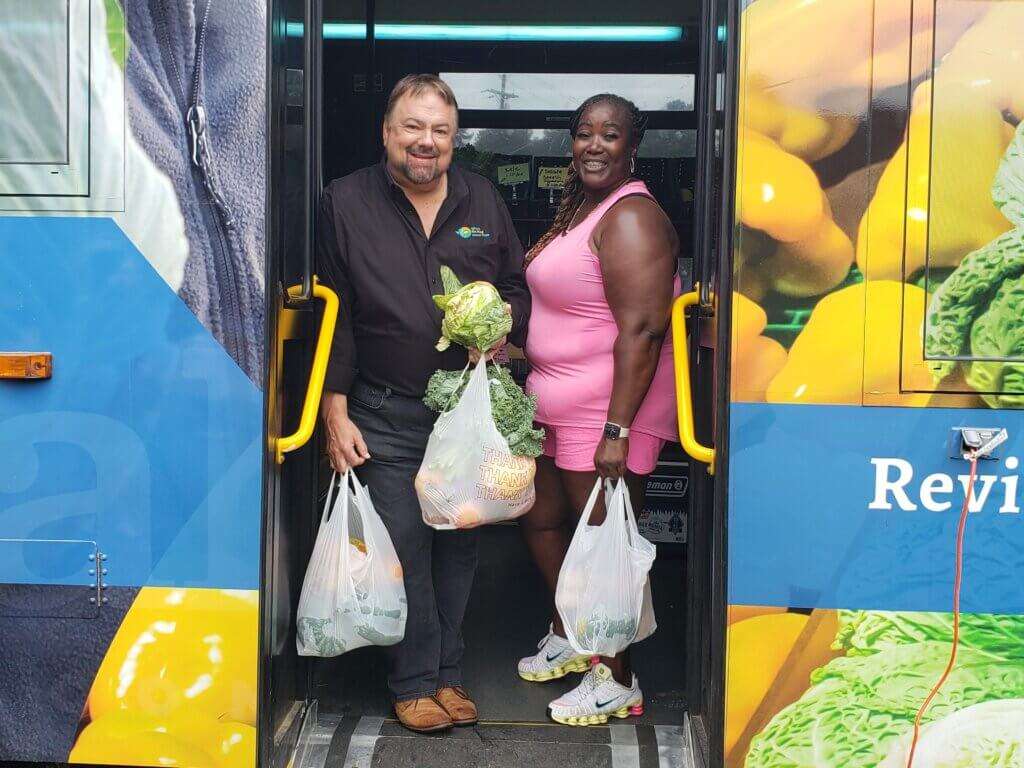
As you can tell from the smiles on their faces the shopping trip was a success. Subconsciously, after looking at all of the wonderful produce, I wanted to be invited over to Christy’s for lunch.
Once again there are a lot of interviews. You have heard me say that before, but what could be important than feeding those in need and the people who make it happen.
Our next interview took place with Community Health Development Director Sarah Hester and Executive Director Ripe Revival Kara Cox.
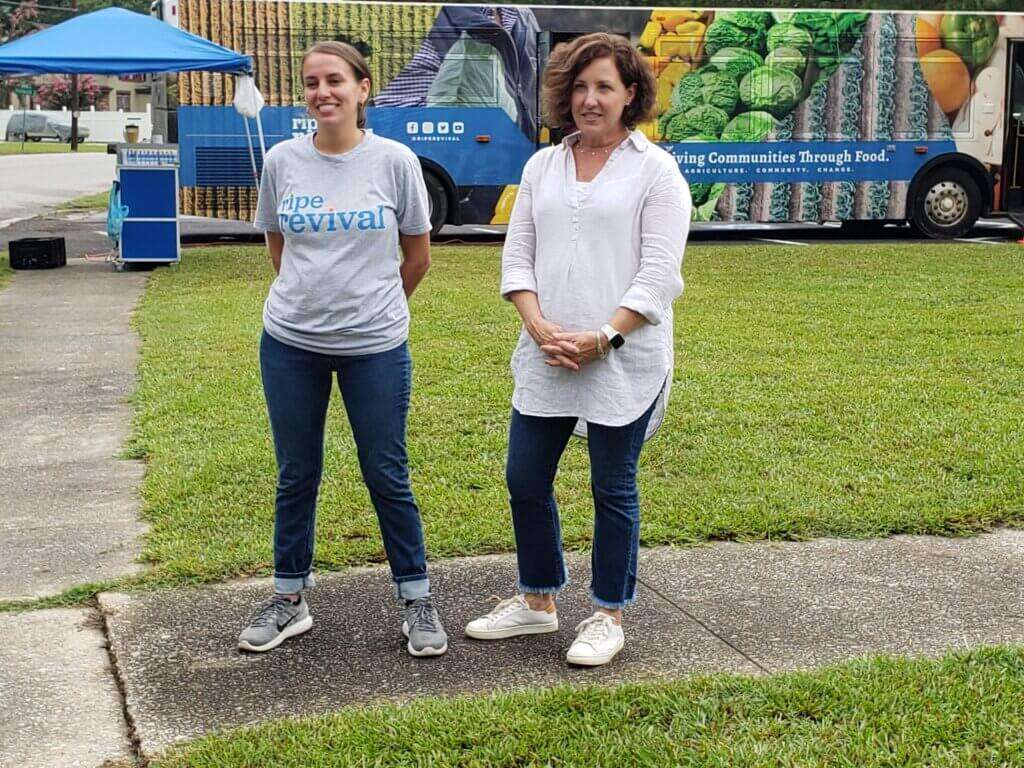
Sarah (L) & Kara
These two beautiful ladies did not need much prompting by Chip to discuss Ripe Revival, how it works, and its future goals. They explained how Ripe Revival partners with churches all over the state to coordinate visits with this truly incredible and very bright bus.
So what are Ripe Revival’s goal? Well here it is and it is quite ambitious, but I have no doubt they will pull it off. By the end of the year their plan is to run four buses which will operate in 18 counties over 20 separate sites. They anticipate being able to deliver millions of pounds of food to those who need it. Pretty impressive right!
Let’s meet Robert J. Yarbrough, Pastor St. Mark AMA Church. One of my jobs is to locate the interviewee so the rest of the crew can get them ready for their interview. Pastor Robert had so much energy he seemed to be everywhere at once. That did not make my job easy.
You have seen me use adjectives to describe the people Chip interviews and sometimes it can be really tough. Trying to describe Pastor Robert was a real challenge.
I think the best way to describe this man is through his aura. Aura’s are energy fields that surrounds a person – we all have them as we are made from energy. There are seven different aura colors ranging from violet to red. Each color represents multiple qualities a person has. Pastor Robert exuded all characteristics of this color range; from intellectual, spiritually connected, intuitive, nurturing, friendly, thoughtful, and well grounded. There are more adjectives but you get the idea. Oh, one more thing he is from New Jersey. This holds a special place in my heart because I am from there as well.
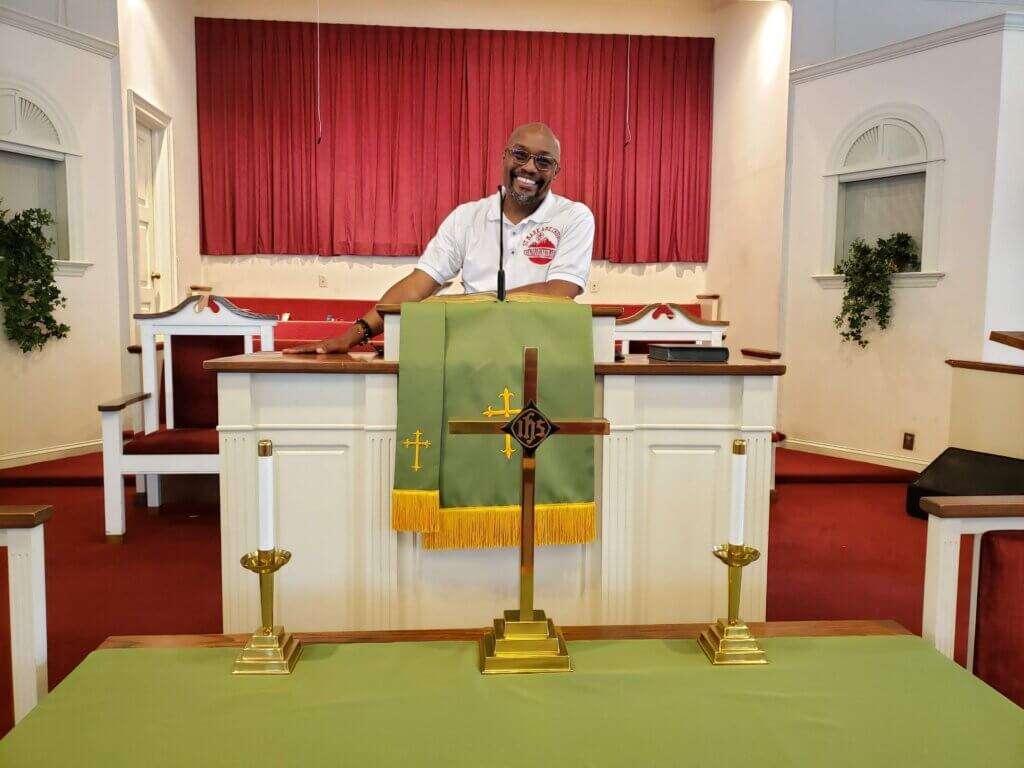
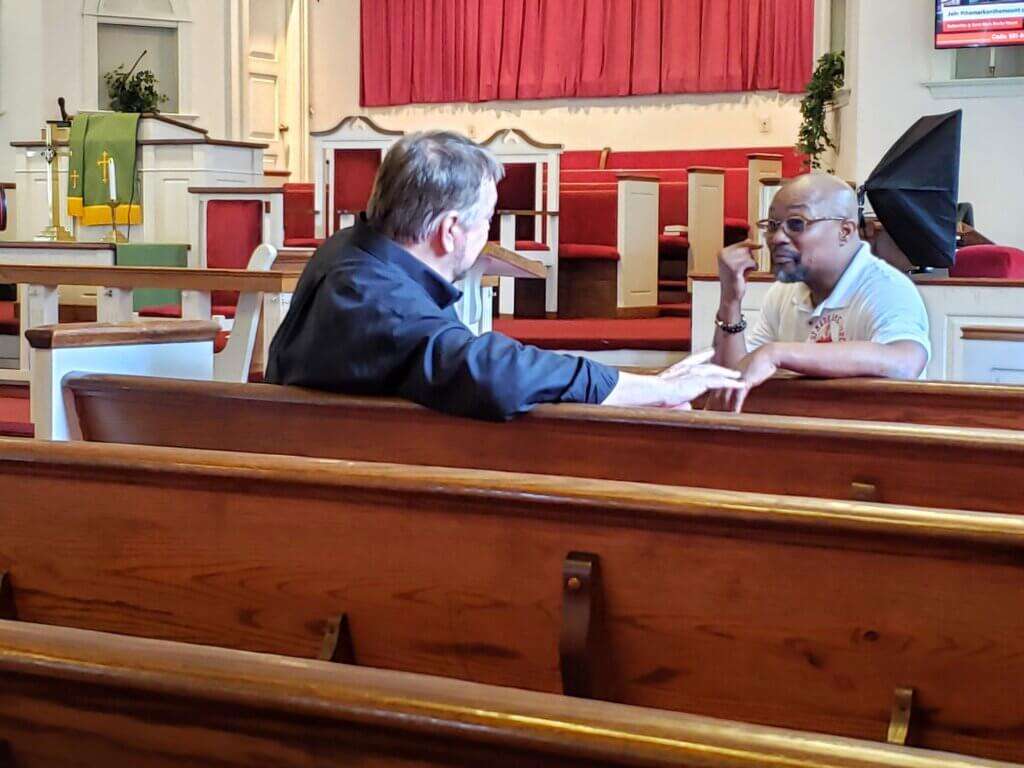
The interview took place in the chapel St. Mark AMA Church. I am not sure you all know this, but Chip is the son of a minister. Well this alone gave them a lot to talk about and they did.
Time to talk philosophy. From a nurse’s standpoint, we have to treat the body in a holistic manner – body, mind and spirit. For this to happen basic needs must be met first. Pastor Robert could not have reinforced this same philosophy enough. Pastor Robert said, “Without the basic needs being met – food, clothing, and shelter – nothing else can follow. You need food to nurture the soul.” How true is that?
The interview is very emotional and may bring a tear to your eye. Personally, I am glad I had tissues. This phenomenal interview can be heard in the episode.
Our Final Stop – First Fruits Farm
If you are a football fan you probably have heard of Jason Brown. During his college career at University of North Carolina he played tackle, guard and center. Pretty good choice given his size. Professionally, Jason played for the Baltimore Ravens and St. Louis Rams.
Let’s take a trip back in time. At Northern Vance High School, Henderson NC, he played the trombone in marching band, had a passion for track & field, and was a member of the National Honor Society. Pretty good stuff. Well things can change. The football coach at the high school felt Jason would be better suited and convinced him to play football, and a career was born.
For reasons of his own Jason retired from professional football at age 29 and heard the calling to farm. I forgot to mention his strong Christian values and faith are what he basis his life on.
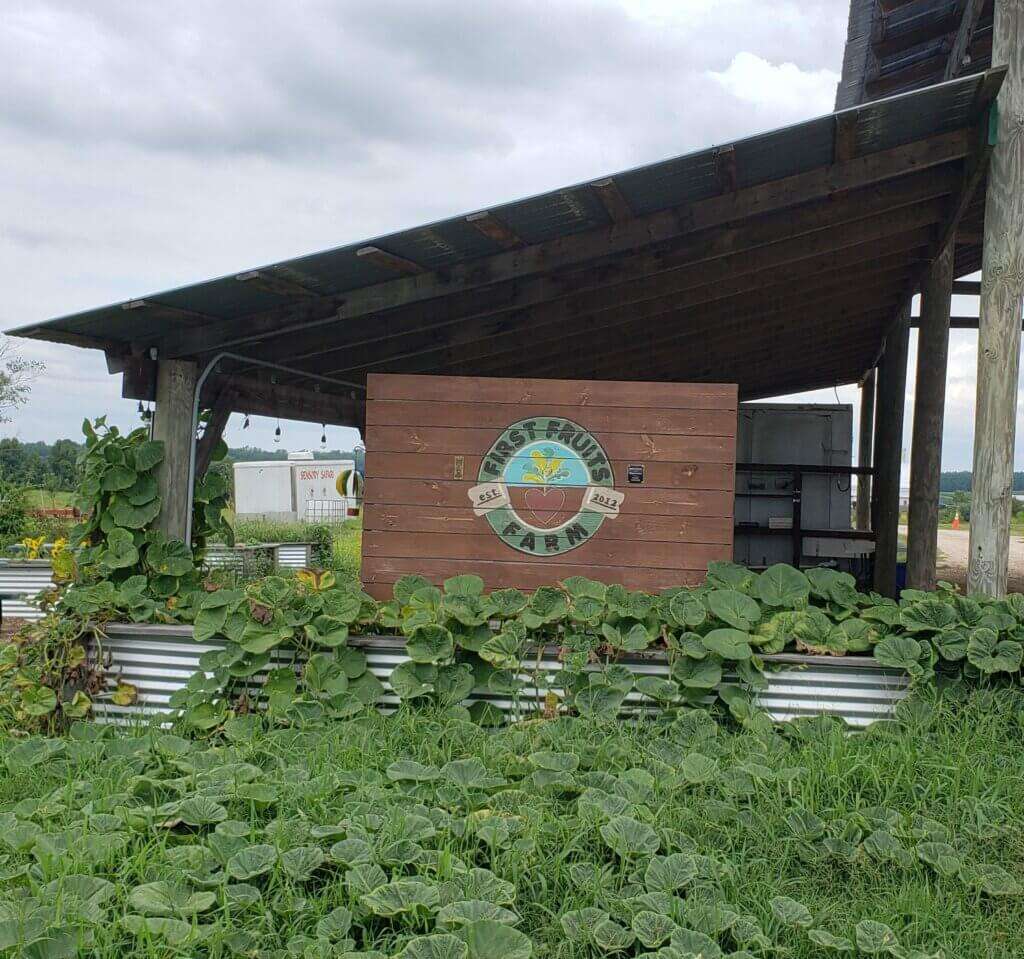
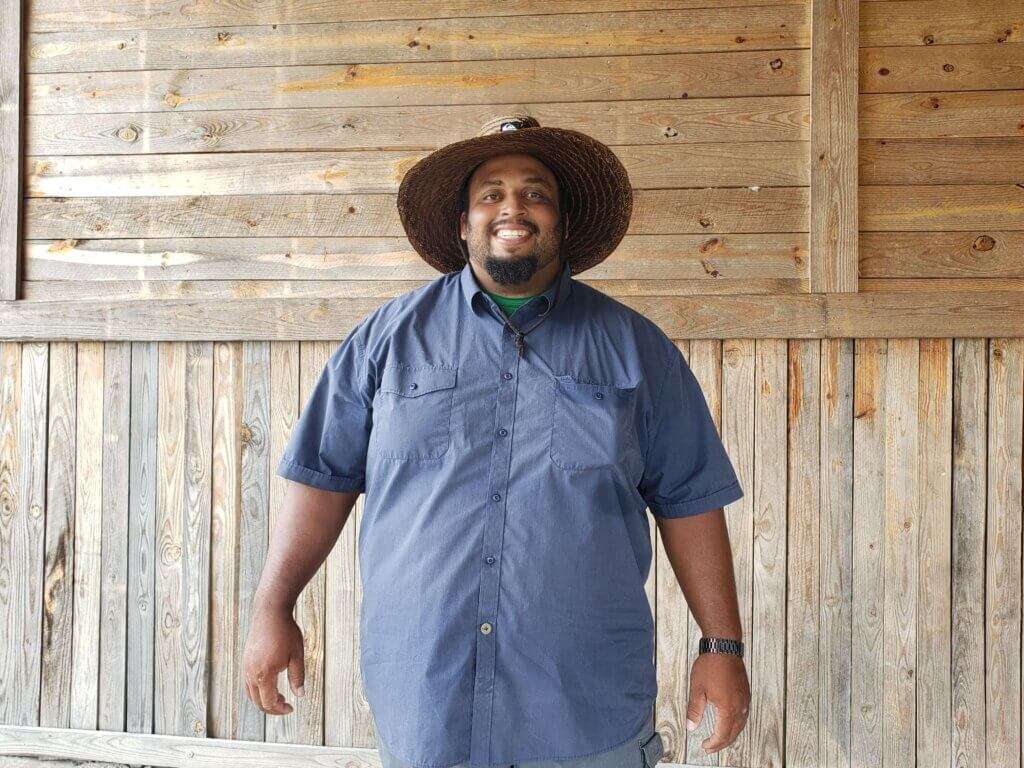
He returned to Henderson, NC – a very out of the way place – and so it began. This is kind of interesting because he did not know how to farm and turned to the internet. Jason watched you tube videos. Yes, you tube videos and if you have ever tried this it can be rather tedious. He broke the information down into its component parts and tried to copy it. I am sure you will hear most of this in the interview, but I think it bears repeating.
The result of his desire to farm led to the creation of Fresh Fruits Farm in 2012. On this 1,000 acre farm Jason grows a lot of sweetpotatoes and cucumbers. So what does he do with all the sweetpotatoes and cucumbers? He donates the produce to food pantries. Again, “giving back to the community.”
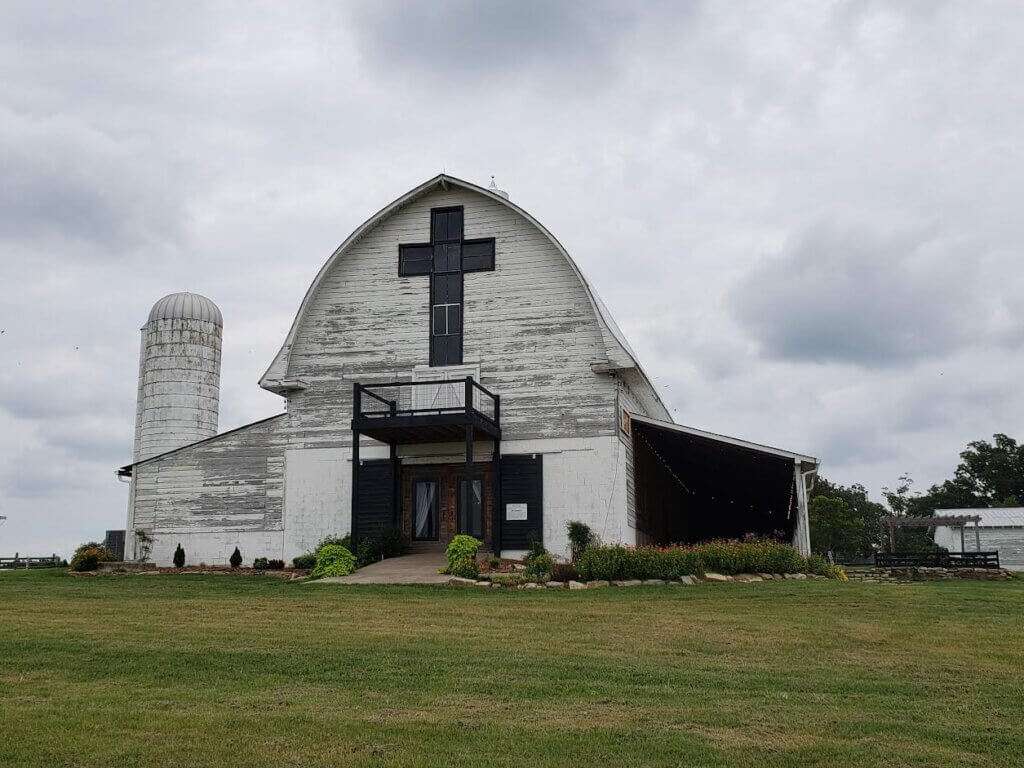
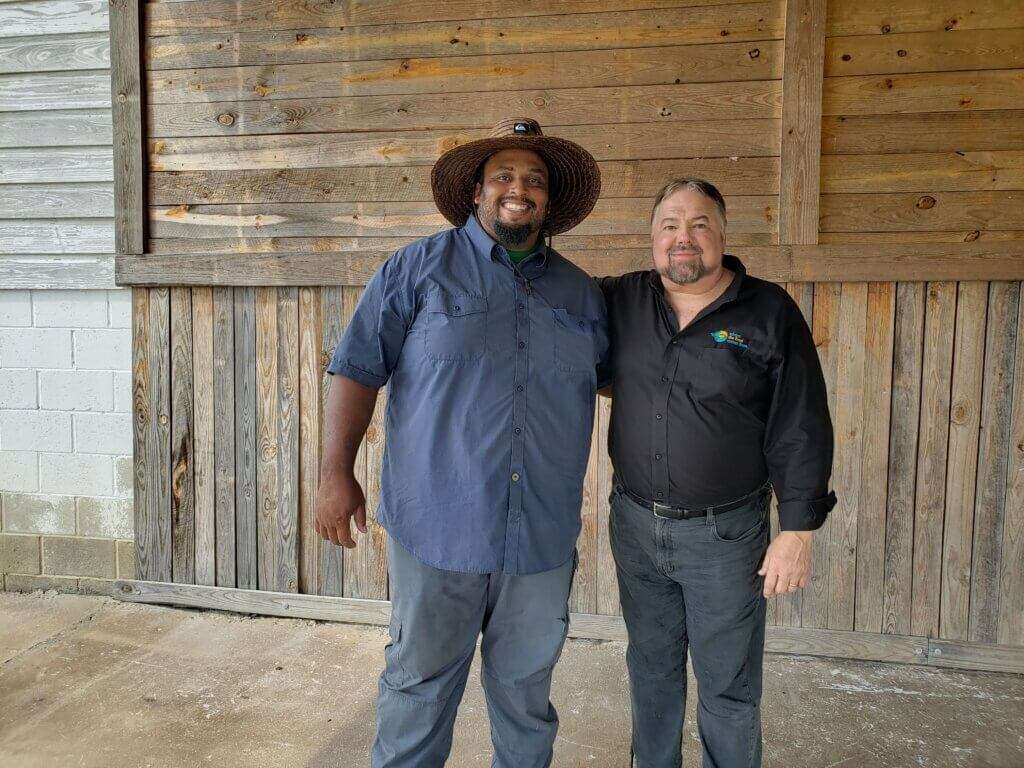
But my job is not to give a rundown about the interviews, but to highlight things I feel are interesting. When we were entering the farm there was a man sitting on a lawn mower. Chip and I thought it was Jason and we were right. He was in the middle of mowing his fields.
We parked our cars and waited until he was done. You can also see from the clouds it was going to rain. Gotta do what you gotta do. The result is evident. Just look at the pristine fields and one beautiful lake on the farm.
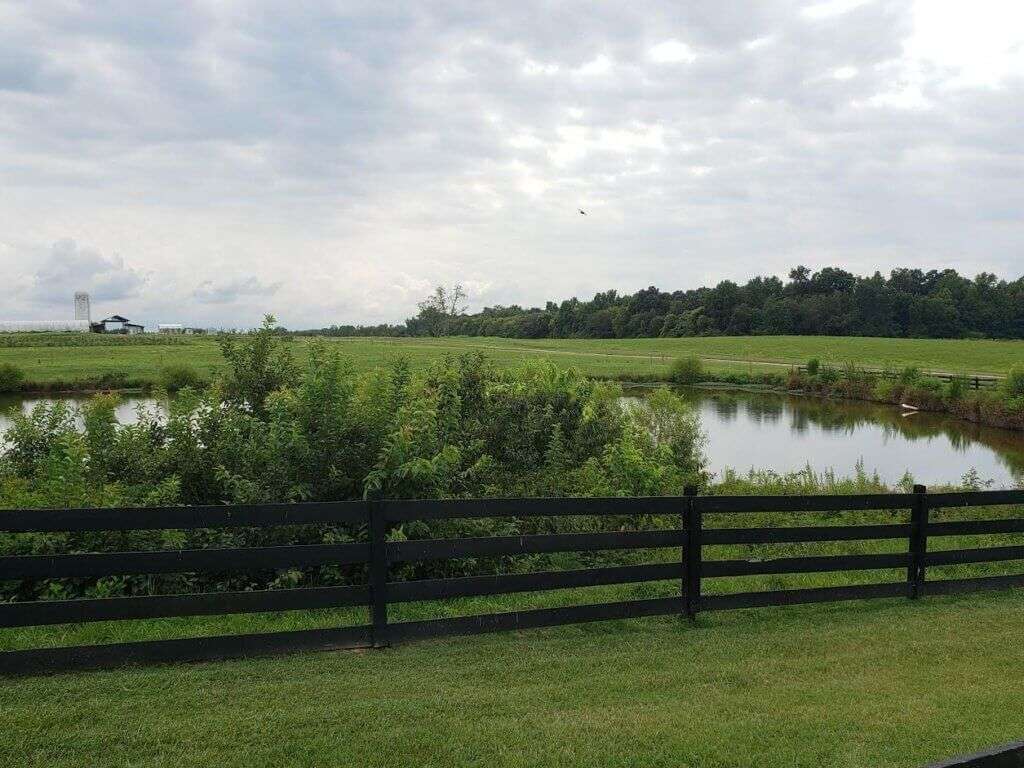
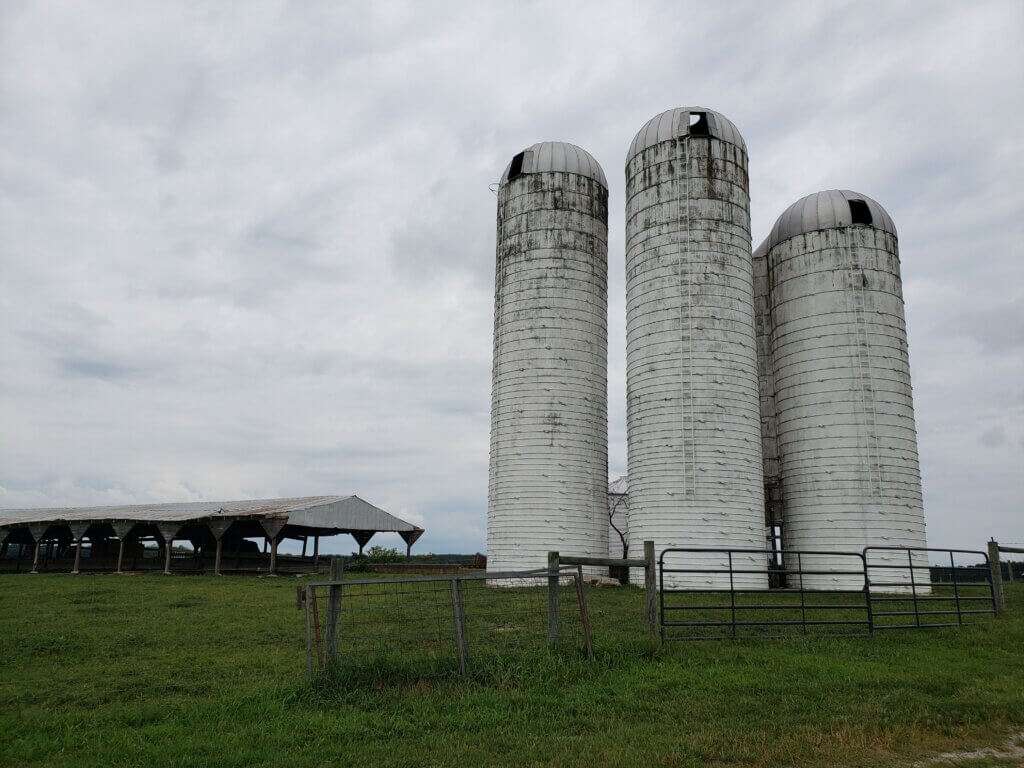
While we were waiting I was wondering around taking pictures. No surprise there. I was intrigued by the silos. If you look closely you can see small protrusions coming out of the sides of the silos. My thought was to have Chip climb up two rungs to film the opening or close of the episode. I really thought this was a great idea. Well I was wrong and was outvoted, the rest of the crew thought it would be too dangerous. I don’t think they saw the rungs.
Back to the interview. If Jason gives away all his produce how does he support his family? An events venue. Jason has converted one of his barns to accommodate weddings and parties. It is a beautiful venue and the below picture does not do it justice.

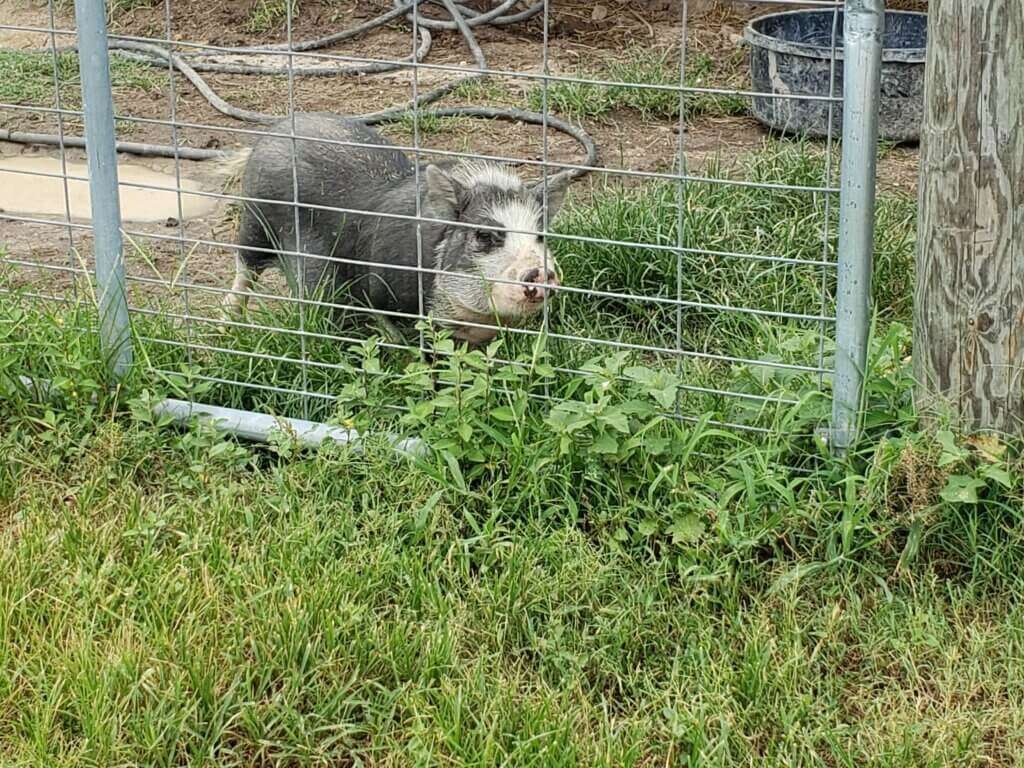
Jason does have small animals on the farm. So this is my just because picture.
So there you have it our two-day trip in North Carolina meeting people whose mission and goal is to help feed the hungry.
My next statement is horrible and a real bad on me, but I did ask Chip, “Why are we were doing so many interviews about this? Doesn’t everyone know there are people in our country that go hungry?” The answer is no. What!!
Chip explained there are a lot of people who don’t know or do not want to recognize it. Think about it. We see commercials from organizations that promote donations to other countries for this very purpose. I have never seen one for the United States and I doubt any of you have either.
Hopefully these interviews will open up our eyes and give us the inspiration to help in the fight against hunger.
After writing this article I have figured out why I want to move to NC. The answer is simple – the people!
Watch Part 1 here

